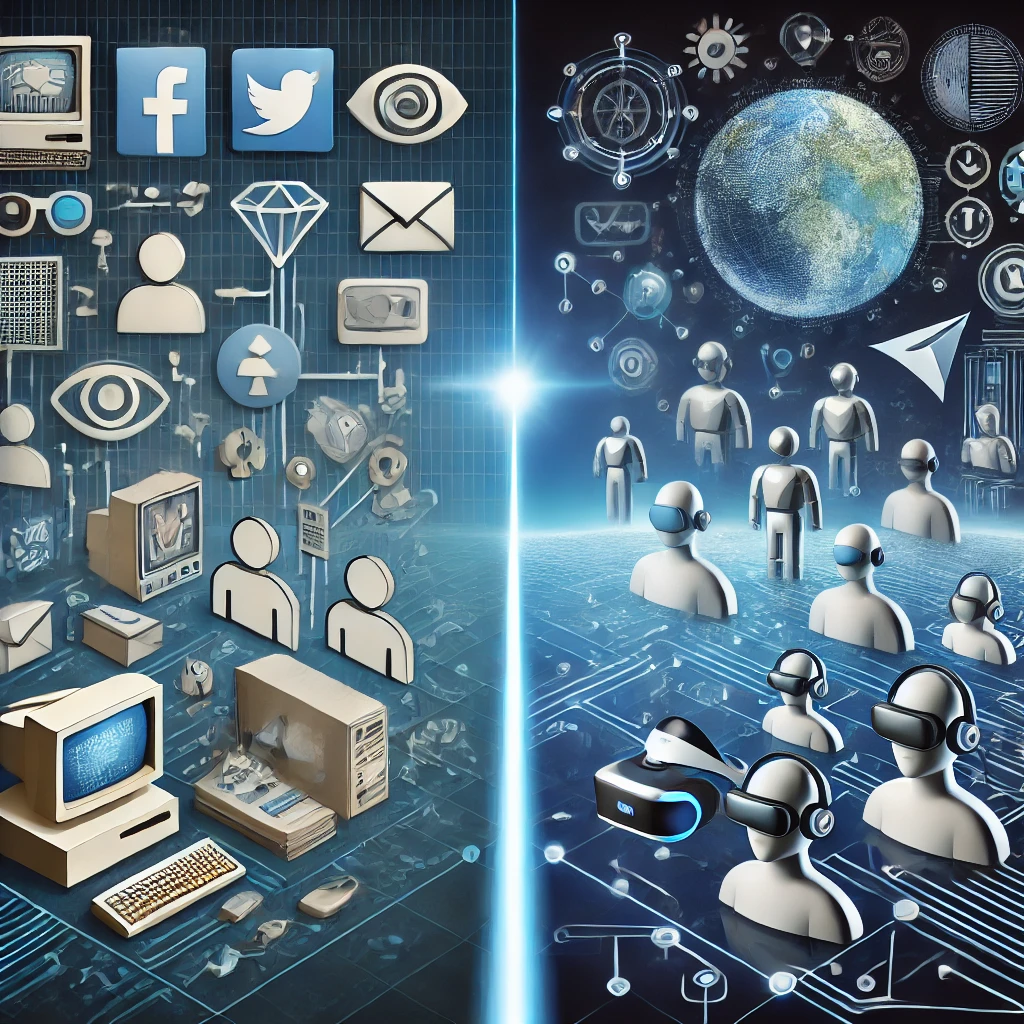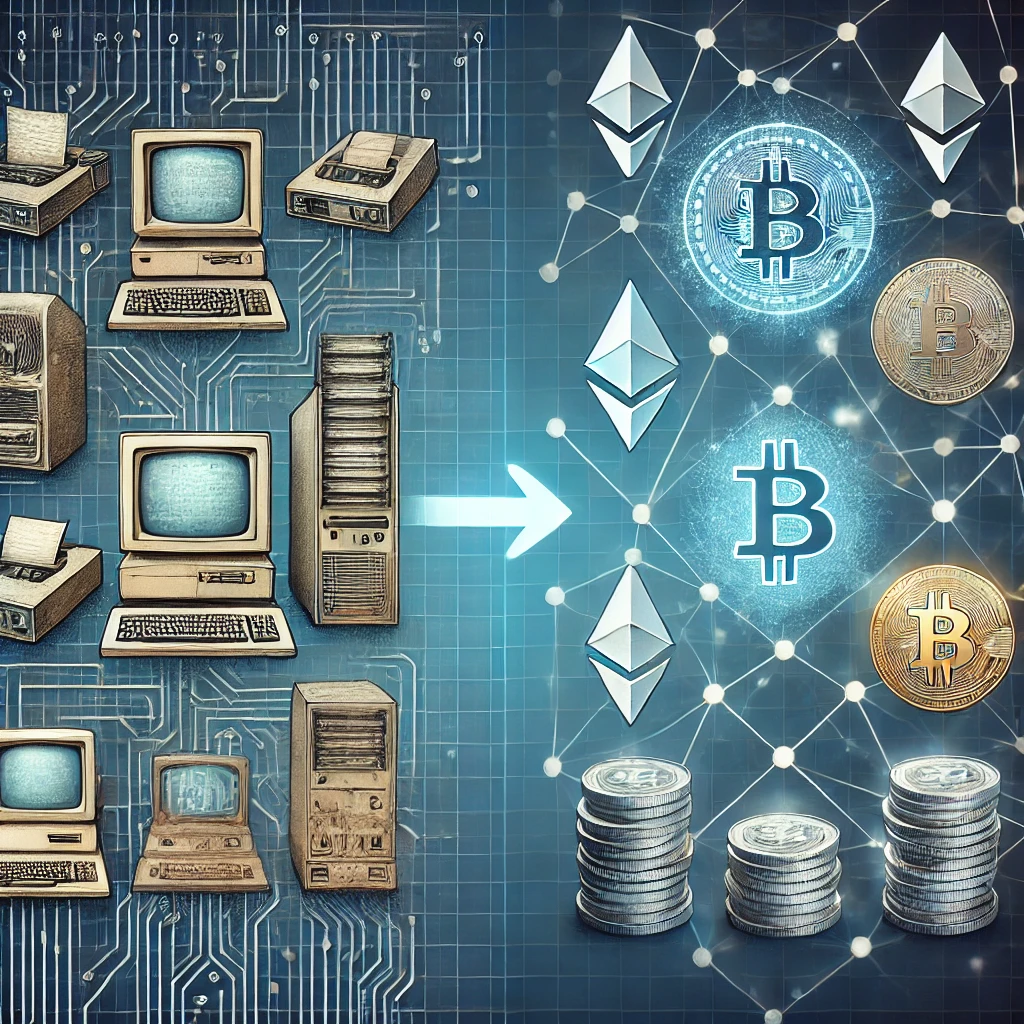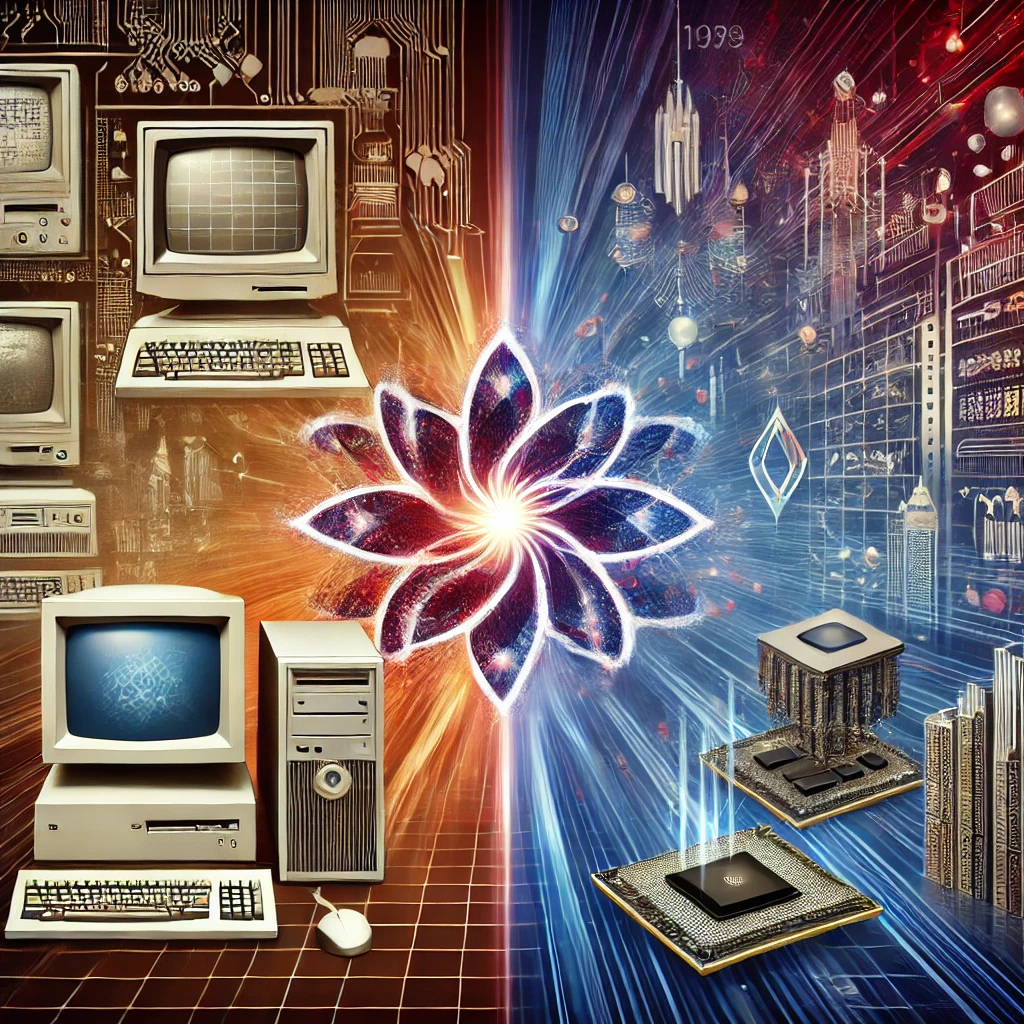From Social Media to the Metaverse: The Evolution of Digital Social Spaces

The early 2000s marked a transformative period in how we connect and communicate with one another. The rise of social media platforms such as online forums, blogs, and later social networks like MySpace and Facebook, redefined the concept of social interaction. For the first time, people could create online identities, build digital communities, and stay connected with others regardless of geographical boundaries. Fast forward to today, and we are witnessing the next chapter in this evolution— the emergence of the Metaverse.
Social media revolutionized communication by allowing users to share their thoughts, photos, and experiences on a global scale. It broke down the barriers of time and space, enabling instant communication and fostering new ways for people to engage with one another. Businesses followed suit, using these platforms to connect with customers, promote products, and even create entirely new business models. Social media became not only a tool for personal interaction but also a powerful driver of the digital economy.
Now, the digital world is on the verge of another transformation with the rise of the Metaverse. The Metaverse, a concept popularized in recent years, represents a virtual universe where people can interact in immersive, three-dimensional environments. Much like social media changed the way we communicate, the Metaverse is poised to redefine how we experience digital spaces. Instead of interacting through text and photos on a screen, users in the Metaverse can engage as avatars in virtual worlds, creating a new form of online presence and identity.
One of the most striking similarities between social media and the Metaverse is the emphasis on community building. Social media platforms gave users a space to form groups, share content, and build connections with like-minded individuals. The Metaverse takes this concept further by allowing people to not only interact with each other but to exist within shared virtual environments. Virtual concerts, digital marketplaces, and online meetings are becoming common, offering a more immersive way for communities to come together.
The Metaverse is also revolutionizing the way businesses operate. Just as social media introduced new marketing and communication channels, the Metaverse offers new opportunities for companies to engage with consumers. Digital storefronts, virtual events, and interactive experiences are allowing businesses to create more engaging customer interactions. With the integration of digital economies, users can even own, trade, and sell virtual goods within the Metaverse, creating entirely new market dynamics.
While social media redefined personal expression and global connectivity, the Metaverse is reshaping online identities. In the world of social media, profiles and posts represent our digital selves. In the Metaverse, avatars—customizable digital representations of users—allow for a new level of identity expression. These avatars can move, interact, and participate in activities within virtual worlds, creating a more dynamic and engaging form of self-representation.
However, with all its potential, the Metaverse also brings challenges, much like social media did in its early days. Issues of privacy, security, and governance will need to be addressed as these virtual spaces grow. Just as social media faced concerns over data protection and online behavior, the Metaverse will have to navigate similar obstacles to ensure a safe and inclusive environment for all users.
The evolution from social media to the Metaverse reflects the ongoing transformation of digital social spaces. While social media brought people together through text and imagery, the Metaverse promises to immerse users in entirely new worlds where they can connect, create, and collaborate in ways that go beyond traditional digital interactions. This next step in the evolution of technology will undoubtedly shape the future of how we live, work, and socialize in the digital realm.


Olivia Harris
Excellent coverage of internet history and its impact.
Christopher Taylor
I found the blockchain information very helpful, thanks!